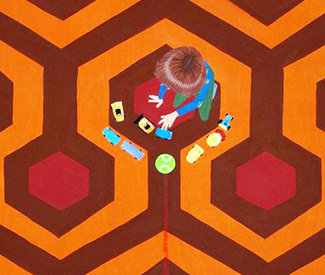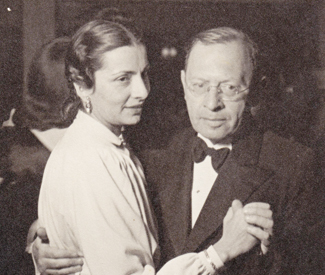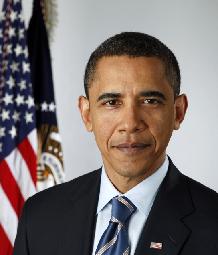Since club life is unpredictable, it’s a good idea to call ahead or check the venue’s website to confirm bookings and hours. Prices are listed when provided to us. Visit www.sfbg.com/venue-guide for venue information. Submit items for the listings at listings@sfbg.com. For further information on how to submit items for the listings, see Picks.
WEDNESDAY 7
ROCK/BLUES/HIP-HOP
Afghan Whigs Fillmore. 8pm, $35.
A Place to Bury Strangers, Bleeding Rainbow, DJ Joel Gion Independent. 8pm, $15.
Asia Regency Ballroom. 8pm, $42.50-$65.50.
Roem Baur Red Devil Lounge. 6pm, $10.
Bobby Caldwell Rrazz Room. 8pm, $45-$47.50.
Dunwells, Magic Magic Roses, Chelsea TK and the Tzigane Society, Redlight District, Lauren Barth Brick and Mortar Music Hall. 8pm, $8-$10.
Felsen 50 Mason Social House, SF; www.50masonsocialhouse.com. 8pm, $5.
Jason Marion Johnny Foley’s. 9pm, free.
Smoking Popes, Luther, Dr. Frank Slim’s. 8pm, $15.
Nathan Temby vs Guido Johnny Foley’s Dueling Pianos. 9:30pm.
Twin Sister, Melted Toys, Some Ember, Yalls Rickshaw Stop. 8pm, $10.
Mike Watt and the Missingmen, Victory and Associates, Jokes for Feelings Bottom of the Hill. 9pm, $15.
Weekender, Loss, Kegels Hemlock Tavern. 8:30pm, $7.
JAZZ/NEW MUSIC
Cat’s Corner with Nathan Dias Savanna Jazz. 9pm, $10.
Dink Dink Dink, Gaucho, Eric Garland’s Jazz Session Amnesia. 7pm, free.
Reuben Rye Rite Spot Cafe. 9pm, free.
Ricardo Scales Top of the Mark, 999 California, SF; www.topofthemark.com. 6:30pm, $5.
FOLK/WORLD/COUNTRY
Cha-Ching Boom Boom Room. 8pm, $5.
Kaweh Sextet Yoshi’s SF. 8pm, $15. With Edgardo Cambon, Danilo Paiz, David Belove, Alex Specht, and Willie Garza.
Quatuor Ebene Community Music Center, 544 Capp, SF; www.sfcmc.org. 6-7pm, free.
DANCE CLUBS
Aisle 45 Elbo Room. 9pm, $5. With DJs Mauby, Mauricio Aviles, Citizen 10.
Booty Call Q-Bar, 456 Castro, SF; www.bootycallwednesdays.com. 9pm. Juanita MORE! and Joshua J host this dance party.
Coo-Yah! Slate Bar, 2925 16th St, SF; www.slate-sf.com. 10pm, free. With Vinyl Ambassador, DJ Silverback, DJs Green B and Daneekah.
Housepitality F8, 1192 Folsom, SF; www.housepitality.sf.com 9pm, $5-$10. With Lance De Sardi, CJ Larsen, and Michael Tello.
THURSDAY 8
ROCK/BLUES/HIP-HOP.
Afghan Whigs Fillmore. 8pm, $35.
…And You Will Know Us By the Trail of Dead, Technicolors Independent. 8pm, $18.
Beso Negro Brick and Mortar Music Hall. 10:30pm, $7-$10.
Bobby Caldwell Rrazz Room. 8pm, $45-$47.50.
Diamond Rings, Sky Ferreira, popscene DJs Rickshaw Stop. 9:30pm, $12-$14.
Embryonic Devourment, Antikythera, Satya Sena, Abstracter, Fortress DNA Lounge. 7:30pm, $10.
Go Van Gough Red Poppy Art House. 7pm, $5.
John Lawton Trio Johnny Foley’s. 9pm, free.
Johnny Lawrie, Elegant Trash, Garden Band 50 Mason Social House, SF; www.50masonsocialhouse.com. 9:30pm, free.
Benjamin Francis Leftwich, Andrew Blair, Owl Paws Bottom of the Hill. 9pm, $12.
Lovely Bad Things, Cosmonauts, Vacant Lots Hemlock Tavern. 8:30pm, $10.
Phenomenauts, Glowing Stars, Judgement Day, Crashfaster DNA Lounge. 9pm, $15.
JC Rockit vs Nathan Temby Johnny Foley’s Dueling Pianos. 9:30pm.
Sea and Cake, Matthew Friedberger Slim’s. 9pm, $21.
Sovereign Sect Boom Boom Room. 8pm, $8.
Tilly and the Wall, Icky Blossoms, Il Gato Great American Music Hall. 8pm, $18.
JAZZ/NEW MUSIC
Poncho Sanchez and His Latin Jazz Band Yoshi’s SF. 8pm, $25; 10pm, $20.
SF Jazz Hotplate Series Amnesia. 9pm.
Stompy Jones Top of the Mark, 999 California, SF; www.topofthemark.com. 7:30pm, $10.
Tin Cup Serenade Rite Spot Cafe. 9pm, free.
FOLK/WORLD/COUNTRY
Chicha Libre Elbo Room. 9:30pm, $10. Live psychedelic cumbia, with DJ-host Pleasuremaker.
“From Baroque to Beijing Opera Festival School Show” JCCSF, 3200 California, SF; www.sfworldmusicfestival.org. 10am and noon, $5-$10. San Francisco World Music Festival.
Tracy Grammer Hotel Utah. 9pm, $12-$15.
Lunasa Brick and Mortar Music Hall. 8pm, $20-$25.
Twang! Honky Tonk Fiddler’s Green, 1330 Columbus, SF; www.twanghonkytonk.com. 5pm. Live country music.
DANCE CLUBS
All 80s Thursday Cat Club. 9pm, $6 (free before 9:30pm). The best of ’80s mainstream and underground.
Base: Gregor Tresher Vessel, 85 Campton Place, SF; www.vesselsf.com. 10pm, $5-$10.
Darling Nikki Slate Bar, 2925 16th St, SF; www.slate-sf.com. 9pm, free. Queer dance party.
First Base Rebel, 1760 Market, SF; Facebook: Rebel. 10pm, $3. Old school breaks, disco house, and electro breaks with DJ Loryn, Becky Knox, and guests.
Lions, Tigers, and Queers Underground SF. 10pm-2am, $3. Indie, Electro, and House dance party with resident DJ Becky Knox and special guests.
Starkey, Kastle, Devon Who, Tony Goods 330 Ritch, SF; www.mindfieldpresent.com. 9pm, $15.
Tropicana Madrone Art Bar. 9pm, free. Salsa, cumbia, reggaeton, and more with DJs Don Bustamante, Apocolypto, Sr. Saen, Santero, and Mr. E.
FRIDAY 9
ROCK/BLUES/HIP-HOP
Breakestra, La Misa Negra, DJ Crimson Brick and Mortar Music Hall. 9pm, $12-$15.
Bobby Caldwell Rrazz Room. 7 and 9:30pm, $45-$47.50.
Chop Tops, Rev Tones Elbo Room. 9pm, $15. With burlesque by Sid Scenic, Dorian Faust, Pinkles Kintaro.
Delta Spirit Fillmore. 9pm, $25.
Fall Risk, Jugtown Pirates Slim’s. 9pm, $16.
Meat Sluts, Freakstar, 1906 Hemlock Tavern. 9:30pm, $6.
Rebirth Brass Band Mezzanine. 9pm, $22.
Rupa and the April Fishes, Black Nature Band, Glasses Great American Music Hall. 9pm, $17.50-$20.
Social Studies, Sam Chase, Jon Gunton Independent. 9pm, $15.
Soul Train Revival Boom Boom Room. 8pm, $10.
Super Diamond, Stung Bimbo’s. 9pm, $22.
$wingin’ Utter$, La Plebe, Fucking Buckaroos Bottom of the Hill. 10pm, $14.
Tall Shadows Johnny Foley’s. 9pm, free.
Those Darlins, Pangea, Heavy Cream Rickshaw Stop. 9pm, $12.
Jeff V., Rome Balestrieri, Nathan Temby Johnny Foley’s Dueling Pianos. 9pm.
Two Cow Garage, Copyrights, Civil War Rust, Great Apes Thee Parkside. 9pm, $8.
JAZZ/NEW MUSIC
Audium 1616 Bush, SF; www.audium.org. 8:30pm, $20. Theater of sound-sculptured space.
Black Market Jazz Orchestra Top of the Mark, 999 California, SF; www.topofthemark.com. 9pm, $10.
Doppler Trio Rite Spot Cafe. 9pm, free.
Poncho Sanchez and His Latin Jazz Band Yoshi’s SF. 8pm, $30; 10pm, $25.
FOLK/WORLD/COUNTRY
“From Baroque to Beijing Opera Festival School Show” JCCSF, 3200 California, SF; www.sfworldmusicfestival.org. 10am and noon, $5-$10. San Francisco World Music Festival.
“Opera Project: Voices From the Other Side” JCCSF, 3200 California, SF; www.sfworldmusicfestival.org. 8pm, $20 per day, $64 festival pass. San Francisco World Music Festival.
DANCE CLUBS
Identity Theft, Bad News, Bruse, Names, DJ NoNAmoAN Lab. 9pm, $5.
Indie Slash Amnesia. 10pm. With DJ Danny White.
Joe Lookout, 3600 16th St.,SF; www.lookoutsf.com. 9pm. Eight rotating DJs.
Tim Mason Vessel, 85 Campton Place, SF; www.vesselsf.com. 10pm, $20-$30.
Old School JAMZ El Rio. 9pm. Fruit Stand DJs spinning old school funk, hip-hop, and R&B.
Paris to Dakar Little Baobab, 3388 19th St, SF; (415) 643-3558. 10pm, $5. Afro and world music with rotating DJs.
What the Funk? James Brown vs Fela Mighty. 9pm. With DJ Spinna and Rich Medina.
#Y3K DNA Lounge. 10pm, $13. With Kitty Pryde, Main Attrakionz, Hottub, and Matrixxman.
SATURDAY 10
ROCK/BLUES/HIP-HOP
Black Skies, Caltrop, Prizehog Hemlock Tavern. 9:30pm, $7.
Blue October, Barcelona, A Silent Film Regency Ballroom. 8pm, $32.
Bobby Caldwell Rrazz Room. 7 and 9:30pm, $45-$47.50.
Con Brio, Voodoo Fix Boom Boom Room. 8pm, $15.
Fusion Johnny Foley’s. 9pm, free.
Horde and the Harem, Kris Orlowski, Sam Eliot and the Market Club Gang Hotel Utah. 9pm, $10.
Jon Spencer Blues Explosion, Quasi Great American Music Hall. 9pm, $21-$23.
Grahame Lesh, Walking Spanish, Black Cobra Vipers Brick and Mortar Music Hall. 9:30pm, $7-$10.
La Sera Preservation Hall West at the Chapel, 777 Valencia, SF; www.thechapelsf.com. 9:30pm, $10.
Madam and the Ants, Sid Lucious and the Pants, Radishes Thee Parkside. 3pm, free.
Mod Sun, KMAC Brick and Mortar Music Hall. 7pm, $12.
New Trust, Hard Girls, Child Bite, Starskate Thee Parkside. 9pm, $8.
No Alternative, Freedom Club, Bad Coyotes, Rinds Knockout. 3:30-8pm, $6.
Octopus Project, Doe Eye, Teenage Sweater Bottom of the Hill. 10pm, $12.
Pure Roots Pier 23 on the Embarcadero, SF; www.pier23cafe.com. 9pm, $10.
Rebirth Brass Band Mezzanine. 9pm, $22.
Sol, Zanzibar, En Vivo Slim’s. 8pm, $12.
St. Tropez, Yesway Red Poppy Art House. 8pm, $10-$15.
Nathan Temby, Jeff V., Rome Balestrieri Johnny Foley’s Dueling Pianos. 9pm.
Three Times Bad Riptide Tavern. 9:30pm, free.
Steve Winwood, Wood Brothers Warfield. 9pm, $35-$79.
JAZZ/NEW MUSIC
Audium 1616 Bush, SF; www.audium.org. 8:30pm, $20. Theater of sound-sculptured space.
Cottontails Rite Spot Cafe. 9pm, free.
Poncho Sanchez and His Latin Jazz Band Yoshi’s SF. 8pm, $30; 10pm, $25.
FOLK/WORLD/COUNTRY
Katie Garibaldi EXIT Cafe at Exit Theater, 156 Eddy, SF; (415) 673-3847. 8:30pm, free.
“Opera Project: Voices From the Other Side” JCCSF, 3200 California, SF; www.sfworldmusicfestival.org. 8pm, $20 per day, $64 festival pass. San Francisco World Music Festival.
DANCE CLUBS
Bootie SF: Hubba Hubba Review DNA Lounge. 9pm, $15. Mashups with DJ Mykill, and Tyme and Nathan Scot.
Braza! Slate Bar, 2925 16th St, SF; www.slate-sf.com. 10pm, $5. Brazilian dance party.
Cockblock Rickshaw Stop. 10pm, $5-$10.
Club Gossip Cat Club. 9pm, free before 9:30pm, $5-$8 after. With VJs Shon, Low Life, Damon, and more.
DJ Garth Public Works. 10pm, $5-$10.
Kinky Disko Rebel, 1760 Market, SF; www.kinkydisco.com. 9pm, $5. With DJ Johnny Sonic.
Non Stop Bhangra: Diwali Celebration Public Works. 9pm, $15.
Paris to Dakar Little Baobab, 3388 19th St, SF; (415) 643-3558. 10pm, $5. Afro and world music with rotating DJs.
Tall Sasha, Jason Kwan, Reggie Soares Vessel, 85 Campton Place, SF; www.vesselsf.com. 10pm, $20-$30.
Tormenta Tropical Elbo Room. 10pm, $5-$10. With resident DJs Shawn Reynaldo and Oro11.
2 Men Will Move You Amnesia. 9pm.
SUNDAY 11
ROCK/BLUES/HIP-HOP
Bobby Young Project Boom Boom Room. 8pm, $free.
I Fight Dragons, MC Lars, Skyfox Slim’s. 8pm, $14-$16.
John Lawton Trio Johnny Foley’s. 9pm, free.
Lordrifa, Bermuda Triangle Service, Duck You Sucker Brick and Mortar Music Hall. 9pm, $5-$8.
“Monsters of Mission Rock” Knockout. 4:30-8pm, $5. With Rock Bottom, Tigon, Standard Poodle, Big Long Now.
Monkees Regency Ballroom. 7:30pm, $49.50-$99.50.
NoRey Pa’Ina Lounge, 1865 Post, SF; www.painasf.com. 7:30pm.
Onuinu Hemlock Tavern. 6pm, $8.
Sic Waiting O’Reilly’s Irish Pub, 622 Green, SF; www.sforeillys.com. 8pm, free.
JAZZ/NEW MUSIC
Karina Denike, Lily Taylor Rite Spot Cafe. 8:30pm, free.
Noertker’s Moxie Musicians’ Union Hall, 116 Ninth St, SF; www.noertker.com. 7:30pm, $10.
Kenny Washington and Jeff Massanari Bliss Bar, 4026 24th St, SF; www.blissbarsf.com. 4:30pm, $10.
Wesla Whitfield and the Mike Greensill Trio Rrazz Room. 5pm, $30-$40.
FOLK/WORLD/COUNTRY
“Opera Project: Voices From the Other Side” JCCSF, 3200 California, SF; www.sfworldmusicfestival.org. 7pm, $20 per day, $64 festival pass. San Francisco World Music Festival.
Jeff Surak, Scott Arford, Relay for Death, Tralphaz Lab. 8pm, $7.
“Twang Sunday” Thee Parkside. 4pm, free. With Rodgers.
DANCE CLUBS
Dub Mission Elbo Room. 9pm, $10-$11. With Dr. Israel, Cliff Tune, and DJ Sep.
Freakquency DNA Lounge. 8pm, $20.
Jock Lookout, 3600 16th St, SF; www.lookoutsf.com. 3pm, $2.
MONDAY 12
ROCK/BLUES/HIP-HOP
Damir Johnny Foley’s. 9pm, free.
Japandroids, Bleached Fillmore. 8pm, $20.
King Dude, Malditos Elbo Room. 9pm, $10.
AC Newman, Harriet Independent. 8pm, $15.
Spittin’ Cobras, Abatis, Breaks Thee Parkside. 8pm, $7.
Titus Andronicus, Ceremony Great American Music Hall. 8pm, $17-$19.
Tyler Ward, Matthew Moore, Kira Stone Bottom of the Hill. 8:30pm, $12.
JAZZ/NEW MUSIC
Dawn Oberg Rite Spot Cafe. 8:30pm, free.
SF All-Star Big Band CD release party Yoshi’s SF. 8pm, $15-$25.
Wesla Whitfield and the Mike Greensill Trio Rrazz Room. 8pm, $30-$40.
FOLK/WORLD/COUNTRY
Toshio Hirano Amnesia. 9pm, free.
DANCE CLUBS
Crazy Mondays Beauty Bar, 2299 Mission, SF; www.thebeautybar.com. 10pm, free. Hip-hop and other stuff.
Death Guild DNA Lounge. 9:30pm, $3-$5. Gothic, industrial, and synthpop with Decay, Joe Radio, Melting Girl.
M.O.M. Madrone Art Bar. 6pm, free. DJs Timoteo Gigante, Gordo Cabeza, and Chris Phlek playing all Motown every Monday.
Soul Cafe John Colins Lounge, 138 Minna, SF; www.johncolins.com. 9pm. R&B, Hip-Hop, Neosoul, reggae, dancehall, and more with DJ Jerry Ross.
Vibes’N’Stuff El Amigo Bar, 3355 Mission, SF; (415) 852-0092. 10pm, free. Conscious jazz and hip-hop with DJs Luce Lucy, Vinnie Esparza, and more.
TUESDAY 13
ROCK/BLUES/HIP-HOP
Coyote Trickster Boom Boom Room. 8pm, $5.
Ben Gibbard, Damien Jurado Palace of Fine Arts. 8pm, $35.
Minus the Bear, Cursive, Girl in a Coma Regency Ballroom. 8pm, $25.
Mynabirds, Paige and the Thousand Rickshaw Stop. 8pm, $10.
Sera Choone, Parson Red Heads, TV Mike and the Scarecrows Brick and Mortar Music Hall. 9pm, $9-$12.
Set it Off, Handguns, Troubled Coast Bottom of the Hill. 7:30pm, $12.
Stan Erhart Band Johnny Foley’s. 9pm, free.
Kelley Stoltz Amnesia. 9pm, $7-$10.
Mark Sultan, King Lollipop, Bad Backs, DJ Big Nate Knockout. 3:30-8pm, $6.
Y Axes, Black Out Makeout, Grace Pool Hemlock Tavern. 8:30pm, $6.
JAZZ/NEW MUSIC
Bombshell Betty and Her Burlesqueteers, Fromagique Elbo Room. 9pm, $10.
Frisky Frolics Rite Spot Cafe. 8:30pm, free.
Wesla Whitfield and the Mike Greensill Trio Rrazz Room. 8pm, $30-$40.
FOLK/WORLD/COUNTRY
Juice Newton Acoustic Trio Yoshi’s SF. 8pm, $25.
DANCE CLUBS
Stylus John Colins Lounge, 138 Minna, SF; www.johncolins.com. 9pm. Hip-hop, dancehall, and Bay slaps with DJ Left Lane.













